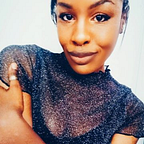There’s More to the Story: How Our Narratives Can Transform Culture
Examining the Lives of Will Smith, Daryl Davis & 200 Ex-Klansmen.
In the past decade, we’ve heard the word “narrative” ambiguously thrown around in culture. The idea of “narrative” is often adversely described as “a belief” that represents a political party, social movement, or a specific group. However, “a narrative” is not a negative device. It’s the library of our experiences, our childhoods, and the pivotal moments we’ve managed to live through. The prose of our character which makes us beautiful, ugly, good, and complicated human beings.
But there’s a difference between our narrative and a manufactured one — “The Narrative.”
What I mean by that is, a manufactured “The Narrative” encompasses pre-made thoughts, ideas, and convictions for easy mass consumption and convenience. Why is it convenient? Because it allows for anyone to rely on what “it” believes rather than having to do the heavy work of understanding what “one” thinks.
Philosopher Alex Rosenberg, the author of How History Gets Things Wrong: The Neuroscience of Our Addiction to Stories, discusses the downfalls when narratives are weaponized for power.
